8 of History’s Most Destructive Lies
These days lying is in the news — practically every day.
Lie was a word that, not so long ago, politicians and the media rarely spoke outright. But under the current administration, the president and the press have repeatedly accused each other of dishonesty. Many of these fabrications are ignored or quickly forgotten by a public that is no longer surprised by mendacity.
But all lies are not equal. And in the media’s frenzy of fact-checking, that’s one fact that’s too often overlooked. Some memorable lies have been spectacularly false but wrought relatively little harm. For example, think of President Nixon’s assertion that “no one in the White House staff … was involved” in the Watergate break-in (August 29, 1972), or President Clinton’s “I did not have sexual relations with that woman” (Jan 26, 1998). They probably changed no one’s mind, and did little to delay the ultimate consequences for those presidents.
But other lies in history not only were whoppers, but also caused untold damage. It’s important that we do not forget these terrible deliberate deceits — lies that were responsible for unspeakable suffering and, in some cases, millions of deaths.
Here are eight lies that had serious, large-scale, long-term consequences. No doubt there are very many more evil fabrications we have overlooked. We welcome your input. It’s important that we never forget how easily and how often mankind has been played for suckers, with disastrous results.
1. “In today’s regulatory environment, it’s virtually impossible to violate rules.”
That’s what Bernie Madoff said in 2007, addressing a conference on illegal practices in Wall Street. Even as he spoke, he was operating the largest Ponzi scheme in history. When it came crashing down the following year, the investment advisor had bilked 4,800 clients of $18 billion.
Result: After confessing that his firm’s asset management was “one big lie,” he was arrested, tried, and sentenced to 150 years in prison. (To date, $11 billion of the lost $18 billion have been recovered and restored to Madoff’s victims.)
2. “There is no doubt that Saddam Hussein now has weapons of mass destruction.”
In the aftermath of 9/11, the United States immediately struck back at the terrorist masterminds in Afghanistan. But many people in the Bush administration were convinced that the dictatorship of Saddam Hussein in Iraq was not only conspiring with Al Qaeda but was stockpiling weapons of mass destruction to use against the United States (illustrated in the above quote from Dick Cheney).
Despite there being no credible evidence that this was true — most intelligence and on-the-ground inspections revealed no WMDs — the Bush administration chose to pin its reasons for going to war on information from an Iraqi informant nicknamed “Curveball,” as well as on documents that showed Iraq had obtained a large quantity of uranium for the purpose of making a nuclear bomb. The informant was soon discredited, and the uranium documents were discovered to be obvious fakes, but the wheels were already in motion. In 2002, President Bush told the country that Saddam not only had stockpiled deadly chemical and biological agents, but that he had also been building nuclear bombs. In 2003 the United States launched war against Iraq. It’s not clear who knew the evidence for WMDs was false, or when they knew it. Regardless, the financial and human cost was devastating.
Result: Thousands of Americans and hundreds of thousands, if not more, of Iraqis have died in a war that lasted eight years and cost $2.4 trillion. General Colin Powell, who led the U.S. defeat of Iraq in the 1991 Gulf War, would later bitterly denounce his own speech in 2003 as U.N. Ambassador defending the Bush invasion. America and the world are still living with the war’s consequences.
3. “Cigarette smoking is no more ‘addictive’ than coffee, tea, or Twinkies.”
For years, the tobacco industry assured customers that cigarettes were neither unhealthy nor addictive. The makers of Old Gold cigarettes claimed “Not a cough in a carload.” And in 1994, James W. Johnston, CEO of R.J. Reynolds, told a congressional committee, “Cigarette smoking is no more ‘addictive’ than coffee, tea, or Twinkies.”
The reality, of course, is quite different. The Centers for Disease Control and Prevention estimates that 480,000 Americans die every year from cigarettes.
Result: In 1998, the four largest tobacco companies reached a settlement with 46 states to pay $206 billion over 25 years to help cover the medical costs of smoking-related illnesses.
4. “We are not about to send American boys nine or ten thousand miles away from home to do what Asian boys ought to be doing for themselves.”
In 1964, Americans were concerned about the country’s growing involvement in the Vietnam War. On October 21, 1964, President Johnson assured the country, as he was running for president, that they had nothing to worry about. Despite his words, the following March, he began shipping Americans by the tens of thousands to Vietnam.
Johnson’s statement began a long campaign by our government to lie to the American people about the fact that almost everyone who knew the facts — from the soldiers to the bureaucrats to the president himself — knew that the war was unwinnable. After Johnson left the White House, President Nixon continued the pretense, even secretly expanding the war into Cambodia.
Americans were furious when, in 1971, defense analyst Daniel Ellsberg released military intelligence — known as the Pentagon Papers — that showed the extent of the deception. They realized they’d been lied to about the conflict because neither Johnson nor Nixon wanted to take responsibility for losing an unwinnable war that we never should have undertaken in the first place.
Result: In addition to the 58,000 American lives it claimed, the war produced a chronic mistrust of the government that, for many, continues to this day.
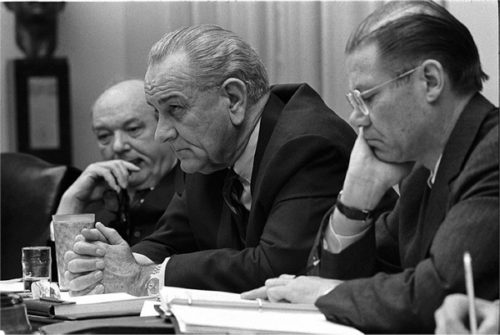
5. “There is no famine or actual starvation, nor is there likely to be.”
In the 1930s, Joseph Stalin was determined to wipe out private farms in Ukraine and put the population into Soviet controlled communes. He instituted a policy that began starving this region. Ultimately, between two and four million people starved to death. As could be expected, the Soviet government denied any problems. What is surprising is that many western reporters repeated Moscow’s interpretation of what was happening in the region.
Walter Duranty, a reporter for the New York Times, wrote repeatedly that was no famine (those are his words, above). He wasn’t the only reporter who parroted the Soviet’s line, but he was at a prestigious paper and had actually won a Pulitzer Prize for his coverage of Stalinist Russia. Duranty also justified the brutality of Stalin’s gulag system as a necessary measure that would ultimately benefit the Russian people.
Result: Duranty’s assertions that there was no actual starvation assured western leaders there was no reason to press for famine relief. His reporting helped the world turn away from the deaths and imprisonment of millions.
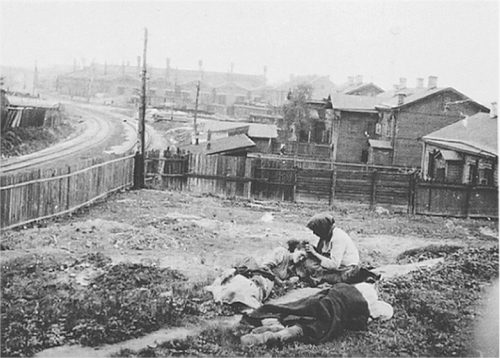
6. “The German Army was stabbed in the back.”
In 1919, General Paul von Hindenburg told the German people why they lost World War I. He said Germany hadn’t been beaten honorably on the battlefield by the enemy, but by radicals and other undesirables back home who’d overthrown the Kaiser’s monarchy and replaced it with a republic. The real reason for the defeat, Hindenburg said, was “The German army was stabbed in the back.”
In fact, the German army had thrown everything it had into one last, desperate chance for victory. By June, they had simply run out of steam. Moreover, the revolution had begun not by civilians but by members of the German military.
But the lie was swallowed by Germans who were convinced that if only the troublemakers could be silenced, Germany would regain its greatness.
Result: The lie fueled the rise of the Nazi party.
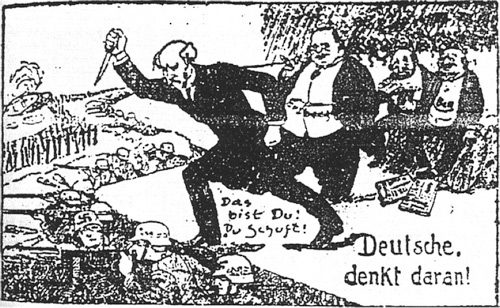
7. “The Jewish Peril: The Protocols of the Learned Elders of Zion”
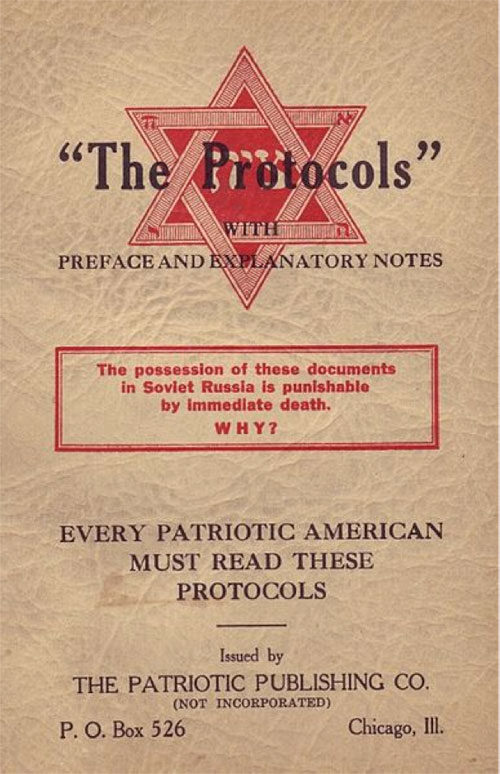
In 1905, Russian writer and mystic priest Sergei Nilus claimed that he had proof of a Jewish plan to achieve global domination by corrupting the morals of Gentiles and controlling the world’s media and money. The Jews were also plotting, he claimed, to slaughter Christian children, spread plague, and commit other atrocities.
Despite the fact that the Protocols were shown to be a malicious fabrication, many people stubbornly believed its vile slanders. Henry Ford thought it so important he paid to publish half a million copies. And the Nazis later cited it to justify their slaughter of eight million Jews.
Result: The Protocols continue to be used to fuel anti-Semitic hatred.
8. “We know Dreyfus is guilty of treason because he ‘made everything disappear.’”
In 1894, French military intelligence officers learned the Germans were receiving secret information about new French artillery. After reviewing possible suspects on the French General Staff, they accused Lt. Col. Alfred Dreyfus. His chief qualification for being suspect was his Jewish faith. He was tried by a military court, found guilty, stripped of his rank, and sent to permanent exile on Devil’s Island off the South American coast.
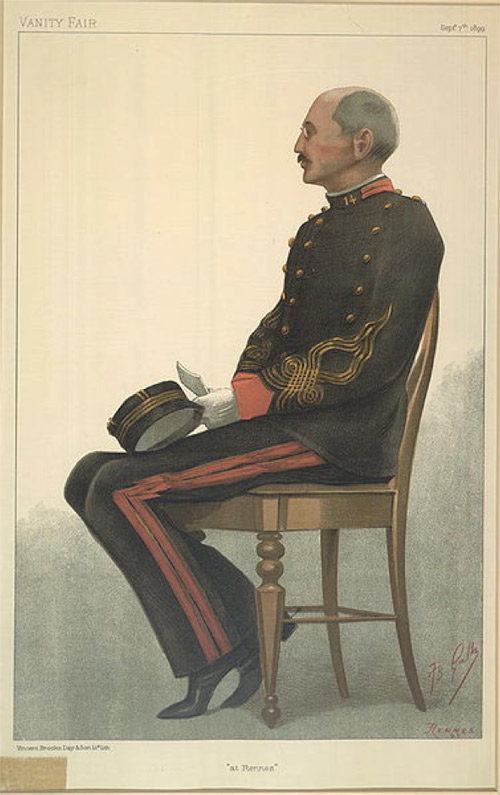
High-ranking military officials had been determined to pin the blame on Dreyfus. They had secretly supplied the judges with wholly invented evidence. And the fact that there was absolutely nothing that implicated him was actually used against him. The proof of guilt, an officer said, was that “Dreyfus made everything disappear.”
In 1896, new evidence indicated the traitor was actually another officer who was allowed to flee the country. For years, the military ignored the public outcry against Dreyfus’s conviction. Ultimately it yielded to pressure and tried Dreyfus again, and convicted him again.
Result: The lie did more than convict an innocent man. It split the country between social classes, age groups, and political parties. Even after Dreyfus accepted a pardon in 1906 rather than return to Devil’s Island, the case continued to divide the country, and this lack of unity seriously weakened its ability to defend itself in both world wars. (The French military finally proclaimed Dreyfus innocent in 1995.)
Featured image: Shutterstock